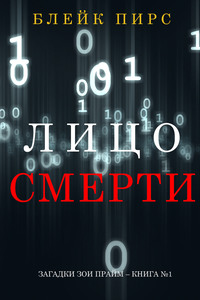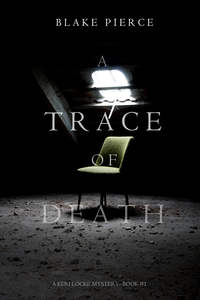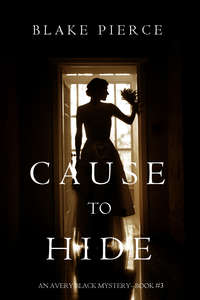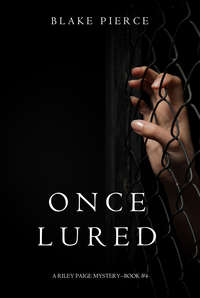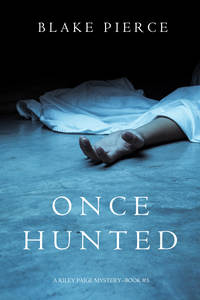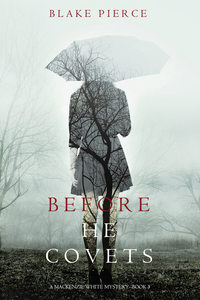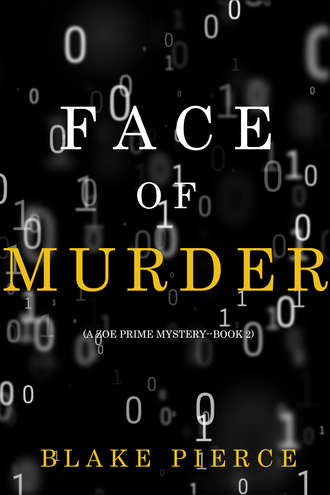 полная версия
полная версияFace of Murder
It was not to be. “We’ve got to keep moving anyway,” Shelley said, stepping outside and looking back to make sure Zoe was following her. “Should we go talk to the professor’s wife next?”
Zoe nodded, giving up. Maybe she was overreacting. She had been told that she could do that, on occasion.
There was more to this case than the physical evidence on the bodies. Of course, the math was tantalizing, as was the target of a respected university. But there was always another story to be heard from the family of the victims, the people who knew them.
Perhaps Mrs. Henderson would be able to shed some light on her husband’s death—and get this frustrating case wrapped up sooner rather than later.
CHAPTER FIVE
Shelley took the driver’s seat, an uncommon occurrence when she was driving with her partner. Shelley knew that Zoe was normally carsick, but today she was so preoccupied with her equations that she hardly seemed to notice the roads flashing by. She wasn’t even clutching at her seatbelt, her usual tell for discomfort.
Shelley glanced over whenever she had a chance—waiting at intersections or paused in a line of traffic. What Zoe was scribbling down frantically across multiple pages of her notebook made no sense at all to her. They might as well have been hieroglyphics.
Zoe had a real gift when it came to numbers, but there were other sides to that too. A single-minded obsession could take over at times, like now. As much as Shelley wanted to help, she had no idea what was required—and Zoe wasn’t about to tell her. She was like that fairly often, too. Quiet, closed off. Shelley had heard the stories about her previous partners, and it wasn’t hard to extrapolate that she maybe had given up on trusting people with her thoughts a long time ago.
Zoe was used to working alone. If she had her way, Shelley was going to change that. It just might take her a long while to get there. In the meantime, she would have to keep prompting her and reminding her to share her thoughts.
Just maybe not about math. Shelley could trust her to work on the math alone.
The English professor lived across town, in one of the flashier suburbs, white-painted houses with wide lawns and matching white fences. Shelley pulled up outside, killing the engine, and waited for Zoe to notice.
She didn’t even look up.
There were times when Shelley felt that she needed to tread carefully around Zoe—to handle her with the utmost care. With kid gloves. Which was somewhat ironic, given that Shelley spent all of her time at home being a parent. There were more than a few times that she felt she was doing the same thing at work, even if Zoe was the older of the two of them.
“We’re here,” Shelley said, softly, not wanting to startle Zoe out of the middle of the calculations she was working on.
Zoe’s pen hesitated in midair, and she looked up at last. She seemed surprised to be anywhere other than the coroner’s office parking lot. “I just need to finish…”
Shelley raised an eyebrow. “Z, is it going to take less than two minutes to finish? Because if not, maybe we should go and talk to the professor’s wife, and come back to the equation later.”
Zoe sighed noisily, but seemed to agree. She stowed her notebook away in a pocket and got out of the car, which Shelley took as a signal to do the same. She revised her earlier thought: dealing with Zoe wasn’t exactly like dealing with a child. More like a surly teenager, at times.
Mrs. Henderson seemed to have been waiting for them, or at least for someone. She was dressed neatly in a dark floral dress, the muted colors conveying something of what she was going through. Her eyes were rimmed with red, but open and sharp, assessing Shelley and Zoe within moments of their meeting at the threshold.
“I’m Special Agent Shelley Rose, and this is Special Agent Zoe Prime. We’d like to come in and talk about your husband, Mrs. Henderson.”
The woman nodded, gesturing them inward, stepping out of the way so that she could close the door after they entered. The house was furnished in an understated classic style, all dark wood and comfortable cushions and throws. Mrs. Henderson led them through into a lounge area, where Shelley gratefully accepted the offer of coffee on both Zoe’s and her own behalf.
“She’s taking it very well,” Shelley murmured, casting an eye around their new setting. It was neat, not a single item out of place. No dust on the low, marble-topped coffee table or the dark sideboard weighed down with mementos and tchotchkes. Several pieces of fresh fruit rested in a burnished bowl in the center of the table. It looked more like a television set than a home that was actually lived in.
Maybe Mrs. Henderson’s way of dealing with her grief was to clean and tidy the home, ready for visitors. It wouldn’t be completely unusual. Shelley had seen it before. It was tied to denial—the thought that if she just made sure that everything was perfect, her husband might come back in through the door.
The busywork, too, put off the grief.
A framed photograph sat on the mantelpiece: the professor and his wife, in happier times. Shelley looked at it and tried not to see the horrific mess that the professor’s head had been turned into.
“Seventeen figurines,” Zoe muttered. Shelley followed her gaze to the sideboard and knew that Zoe was doing what she always did: looking for numbers. In this case, however, they had already taken on a new significance. She was looking for a clue that would lead to a breakthrough with the equations.
The mistress of the house returned after only a few minutes, carrying a tray laden with three hot cups of coffee. The dainty porcelain design of Mrs. Henderson’s cup was offset by the plain practicality of the other two. Two personalities, coming to bear on the contents of a home. Maybe a statement that the visitors she had received today were not worthy of the best china.
“This must have come as a great shock to you,” Shelley said, lifting her cup and blowing gently across the surface of the coffee before taking a sip. Questions or statements like this, open and inviting, often encouraged more information to spill forth. The kind of information that you might not even think to ask for otherwise.
“Oh, yes.” Mrs. Henderson sighed deeply, settling back into the armchair which must have been her habitual place. “I still can’t quite believe it. My Ralph, gone just like that. And so violently, too. I just can’t fathom it.”
“Can you think of a reason behind the level of violence, Mrs. Henderson?”
The older woman closed her eyes briefly, a hand fluttering up to her forehead. It was adorned still with a plain gold wedding band, alongside a more elaborate concoction of small diamonds. Perhaps an engagement ring, decades old. “At first I thought they meant to steal something. His car, or his wallet. But the police said nothing was gone.”
“The psychologists tell us that there’s evidence of great rage in the scene. That kind of anger, well, it usually comes from knowing someone personally. Is there anyone you can think of? Someone who would be angry with your husband, enough to wish him harm?”
An embroidered handkerchief came up to dab at her eyes, the ringed hand lifting to brush away a strand of her mousey brown hair. “I can’t think of it. I mean, Ralph was—he was Ralph. He never hurt a fly. He got on well with his colleagues, was liked by his students. We have a few friends in the neighborhood who would come over for dinner now and then. He never so much as argued with strangers. There was nothing controversial about him. Everyone loved him!”
“All right, so no known enemies,” Shelley said, nodding encouragingly even though she felt frustrated by the answer. It was always better to have somewhere to go next. “Through his whole career, do you think? He never had any trouble at all?”
Mrs. Henderson sniffed, shrugging her shoulders up and down. “Well, there was always something small,” she said, though her tone indicated she thought it could not possibly mean anything. “He was a professor. There were students who didn’t agree with their grades. Or those who flunked out for not attending class or turning in their work on time. They all think they ought to be given special treatment. But that’s normal. Just part of the job. No one would kill over something like a grade, would they?”
Shelley could see that Mrs. Henderson was really asking the question—looking for reassurance. Sadly, Shelley knew that she could not give it to her. People killed for all kinds of reasons. There was not always rationality behind it. Sometimes it was simply the final straw that made them snap, on top of everything else.
Maybe it was an idea worth exploring. Rich, entitled kid given everything in life, suddenly starts to fail for the first time? Throws a fit driven by privilege? Or some down and out student with nothing left to live for—parents recently deceased, girlfriend broken up with him, lost his part-time job, and then a bad grade on top of all the rest? It was something to look into, at the very least.
“Let’s hope not,” she volunteered, along with a small smile intended to convey her sympathies. “Can you think of anything unusual that might have happened in the past days or weeks—even months?”
Mrs. Henderson shook her head, dabbing at her eyes again. “I’ve thought about it, over and over. Everything was just—normal. That’s why it was such a shock. Totally out of the blue. I don’t know why anyone would want to hurt my Ralph at all.”
The woman was getting more and more distressed. Perhaps it would be prudent to wrap the interview up, leave her to her peace. “Is there anything else you can tell us—anything at all? It might not even seem relevant, but every little bit of information is another piece of the puzzle.”
Mrs. Henderson shook her head helplessly.
“All right, one last question. Do you recall your husband ever talking about a student named Cole Davidson?”
“Not until his name was in the papers,” Mrs. Henderson said. “That poor boy. Do you… do you think they are connected? They must be, mustn’t they? Two murders within such a short space of time?”
“It’s not useful for us to speculate at this stage.” Shelley took a final gulp of her coffee, regretting the need to leave behind half of what had been a very decent cup. “But we’ll be in touch if we can tell you more.”
Shelley stood, then hesitated as Zoe joined her. “Mrs. Henderson, do you have someone to keep you company today?”
She nodded slowly, getting up to escort them to the door. “My daughter is flying home. She should be here by tonight.”
That put Shelley’s heart at ease. Leaving a woman alone with her grief never quite sat right, no matter how many family interviews she did. “Then we’ll be in touch, Mrs. Henderson. In the meantime, try to get some rest.”
They got back into the car, Zoe pulling out her notebook immediately to start scribbling again. Shelley wondered if she had even heard a word of the interview, or if she had immediately dismissed it as useless and spent the entire time thinking about numbers.
Whichever it was, Shelley couldn’t get mad. Right now, the equations were the only real clues they had. As they drove back to base, Shelley couldn’t help but worry that they would not find anything of more value that would break the case open. With Zoe so fixated on the numbers, it was going to be up to Shelley to find something else that would make a difference.
The problem was figuring out where to look.
CHAPTER SIX
Zoe resented every moment of wasted time spent on the walk through the building, from the parking lot to the room they had taken over for their investigation. Nearly five hundred steps of distance that could have been spent on working. Nice as it was to be working on something that had happened, as Shelley put it, in their own backyard, Zoe was already getting irritable. The equations were refusing to give up their secrets to her, remaining obtuse and opaque.
As soon as she reached the table, Zoe sat down and resumed her notes, trying to work through every element of the professor’s equation, bit by bit. His was the one they had seen in person, after all, the one that they could be sure was whole.
“I’m going to go through his faculty email account,” Shelley announced, dumping her bag onto a chair and digging out her phone.
“Is that necessary?” Zoe asked, wrinkling her nose. There was no point in rushing around after some kind of clue like that. The answer was in the equations, not in the professor’s personal life. It had to be. There was no link between Cole Davidson and this English professor, not without the equations.
“I’m not good at math, so I can’t help you work through the numbers on this one,” Shelley pointed out. “Something Mrs. Henderson said made me think. It could always be something to do with a student. Someone who felt slighted in some way. It’s possible that there are many people who knew both Cole and Professor Henderson from campus.”
Zoe hesitated, her objections waiting on the tip of her tongue. She felt like it would be a waste of time, poking through a dead man’s emails. But what did it matter? Shelley was right—she couldn’t help with the equations. And maybe it was time that Zoe started trusting her to investigate things in her own way.
Maybe, also, it would be good for Zoe if this case was solved off the back of a disgruntled email, rather than through the numbers. After Shelley had pointed out to their superiors that Zoe was good with math, Zoe wasn’t exactly at pains to prove it. In fact, it would be better if she could pass that off as a partner’s misplaced confidence.
But not, of course, if it compromised the case. Stopping the killer was still the most important thing.
Zoe returned her attention to the equations while Shelley called the university to get the access she needed. The thing was, she had gone about as far as she could go—with both of them. It was true that there was still the possibility of something missed on the student’s body, but they had checked the professor for themselves.
So, what was she missing?
There was another possibility, of course: that she simply wasn’t advanced enough to solve it. There was a difference between being able to see numbers—distances, dimensions, angles—and being able to solve quantum math problems. There were other skills involved, skills that other people spent their whole lives developing. Zoe might have had a gift, but she had devoted it to the pursuit of killers, not to the study of math.
Which brought another idea to her mind.
She got up, leaving Shelley still chatting with a receptionist on her cell, and carried a sheaf of photographs down the hall to the elevator. Up two floors, and down an identical corridor to the one she had left—except that the rooms on this floor had rather more power exuding from each of them.
Zoe took a breath before knocking on her boss’s door. How many times had she been summoned here, to be chewed out for losing another partner or discharging her firearm?
But this was not like those times, and she entered when bidden, trying not to feel nervous.
With his imposing frame and larger than average musculature, it was easy to see how Special Agent in Charge Maitland would have been intimidating in the field. Criminals would have taken one look at him and then run.
Zoe was trying very hard not to feel the same.
“Sir,” she said, hesitating in the doorframe.
Maitland looked up from his paperwork, then continued scrawling his signature at the bottom of a request. “Go on, Special Agent Prime. Don’t wait out in the corridor all day.”
Zoe stepped forward, letting the door close behind her with a little reluctance. She squared her shoulders, however, and faced him with the straight back she always felt inspired to uphold in his presence. “Sir, it is regarding the case Special Agent Rose and I are working on. The college kid and the professor, found with equations written on their bodies.”
Despite the large caseload which must necessarily have gone through the DC field office, Maitland didn’t skip a beat. “I know it. What do you need?”
“The equations are extremely high-level,” Zoe said, feeling a little like a failure for even admitting they were too much for her. Still, it had to be done. Eyeing the neat ninety-degree angles of everything arranged on Maitland’s desk, instead of watching his expression, she pushed herself onward. “I believe we would do better if we brought in a subject matter expert. Someone who could work on the equations from a professional mathematics standpoint.”
Maitland nodded, then paused in his writing as he realized that she was done. “Do you have someone in mind? Special Agent Rose reminded us that you studied math once upon a time.”
“I do, sir.”
“Good.” Maitland’s attention returned to the paperwork, effectively dismissing her. “Permission granted. Have the paperwork turned in ASAP.”
“Yes, sir.” Zoe turned and almost fled for the door, happy to have such a positive outcome. She was not going to stick around and wait for him to change his mind, by any stretch of the imagination.
There was work to do—and someone very important to bring into the case.
***Zoe waited expectantly, watching her mentor examine the images.
“These are… disturbing.” Dr. Applewhite shook her head, holding her lower lip between her teeth for three seconds as she slipped the photograph to the back of the pile in her hands and studied the next one. “I sometimes forget that you have to look at this kind of thing day in and day out. It must take a toll.”
Zoe shrugged. “Dead bodies are dead. It is the not solving them that bothers me.”
“And this is one that you haven’t yet been able to solve.” It was not a question. Zoe had already primed the doctor with the fact that she needed help. Dr. Applewhite knew that it was an open, ongoing case, and that permission had had to be sought for them to even be having this conversation. She understood also that time was of the essence. With every passing hour, it became less and less likely that they would find the person who did this.
The thing about homicides was that the first twenty-four hours were crucial. Everyone knew that. Forty-eight hours without an arrest, and you were starting to head into dangerous territory. The kind of cases that would become episodes of late-night TV shows.
The college kid had been dead for well over forty-eight hours.
“I need to know what it means,” Zoe explained. “Right now, this is the only lead that we have. There does not seem to be any connection between the professor and the student, beyond the fact of their locations. No witnesses, no coverage of surveillance cameras. We have to figure out what kind of message the killer is trying to send if we are going to stop him.”
Dr. Applewhite was frowning down at the images, and she placed them beside Zoe’s notes to run through the calculations Zoe had already made.
“Your working seems sound,” she said, after a while had passed. “I can’t see anywhere else to take it that you haven’t already gone. This is extremely advanced—beyond even the level that I work at.”
Zoe’s heart sunk in her chest. She had been sure, so sure, that Dr. Applewhite would have the answers. Now, it seemed, those hopes were dashed.
She was already thinking through alternatives, trying to figure out what she was going to say to Shelley, when Dr. Applewhite spoke up again.
“I know some people who might be able to help,” she said. “Professors. A couple of mathematicians who work in other fields. If I can show this to them, I might be able to get a bit further with it. This is the kind of challenge that they will all love, so at least we’re bound to get some skilled hands on deck.”
Zoe nodded her approval. “That would be helpful.”
Dr. Applewhite tucked her graying bob behind one ear and looked up, fixing Zoe with that same curious stare now. “How are you holding up on this one? It’s not often a math question comes up that has you stumped.”
Zoe considered lying for a brief moment, but then let her shoulders slump. “A little like a failure. This is my specialty. I should at least be able to work it out. If I cannot, who in the FBI is going to?”
In anyone else’s voice, it would have sounded like a brag. To Zoe, it was pure fact. Analysts and their like might spend all day working with numbers, but they didn’t have the instinctive grasp on them that she did. They couldn’t look at an equation on the page and see the answer as clearly as if it was written out beside it. At least, that was the case for her usually.
This one was something else.
“You can’t be expected to solve everything. No FBI agent in the history of the Bureau ever had a one hundred percent solve rate.”
Zoe smiled a wan smile. “I am sure that there have been examples. Agents who were killed or retired just after solving their first case, for example.”
Dr. Applewhite rolled her eyes. “Trust you to find the loophole. All right, I will make some calls and get these equations out in front of some of my colleagues. I won’t tell them what it’s for—just that it’s urgent and a big challenge. That should intrigue them enough to get them working on it. I will let you know the moment anyone makes a breakthrough.”
“Or anything else, too,” Zoe prompted. “If someone finds a mistake, or a sign that something is missing. We were not able to fully check the first body to see if anything was missed by the photographer. Bear in mind that we also do not know whether this is intended to be one equation or two separate problems.”
“Understood.” Dr. Applewhite placed the photographs down on the desk in front of her, two inches off to the right, closer to her laptop. A gesture that reassured Zoe of her intention to begin work as soon as she had the chance. “Now, what about Dr. Monk’s recommendations? Have you thought anymore about—”
Zoe’s ringtone blasted out from her pocket, accompanied by strong buzzing. Saved by the bell, she thought, as she made an apologetic face and answered the call.
“Special Agent Prime.”
“Z, it’s me. I got a hit in the professor’s emails.”
“I am on my way,” Zoe told her, ending the call and jumping out of her seat with a nod to her mentor. Whatever it was, it had to be more promising than the nothing that they had.
CHAPTER SEVEN
Zoe pulled the car into the campus parking lot. At this time of night, the evening drawing down rapidly, it was fairly full—the cars belonging to students who lived in the various dorms and apartments scattered around. Each of them bore a university permit stuck to their front windshield. Zoe’s car had something better—an FBI sticker.
“Read it to me again?” Zoe asked. She was still unsure about Shelley’s theory. Being angry about a dropped grade was one thing, but angry enough to kill?
Shelley brought up the email on her phone without even a sigh of frustration, to her credit. She had saved the screenshot and brought it along as proof—proof they would need if they were going to confront the student who had sent it.
“‘Professor,’” she read. “‘I can’t believe you flunked me. Like, are you serious? I tried really goddamn hard on his paper and you just decided to kick me off the course! Teachers are supposed to help and support. Thanks a whole fucking bunch. You’re the worst professor I ever had. I hope you get fired. I’m not the only one who hates your guts. You’re going to get hauled over the coals if the dean listens to our complaints. Try sleeping well tonight, asshole.’”
Zoe had already zoned out by the time Shelley was done. She had heard it a couple of times before, and this time had not changed her opinion. It was student bluster, that was all. Threats made to his career, not to his life.
Not to mention that the student in question was studying English, not math. It was not a close enough connection. How could this barely literate student have known to write out complex equations? Complex enough to stump experts?
And besides, even if this kid was angry with the professor, it didn’t at all explain why he would have gone after the first victim—the student.
“Well?” Shelley prompted.
Zoe realized that she had been sitting in silence, failing to respond to Shelley’s reading. She shrugged her shoulders now. “It sounds like nothing.”
“Come on, he’s directly threatening the professor, Z,” Shelley said. “And this allusion to other disgruntled students—what if he knows others who might have done it? At the very least, we need to bring him in for questioning.”


